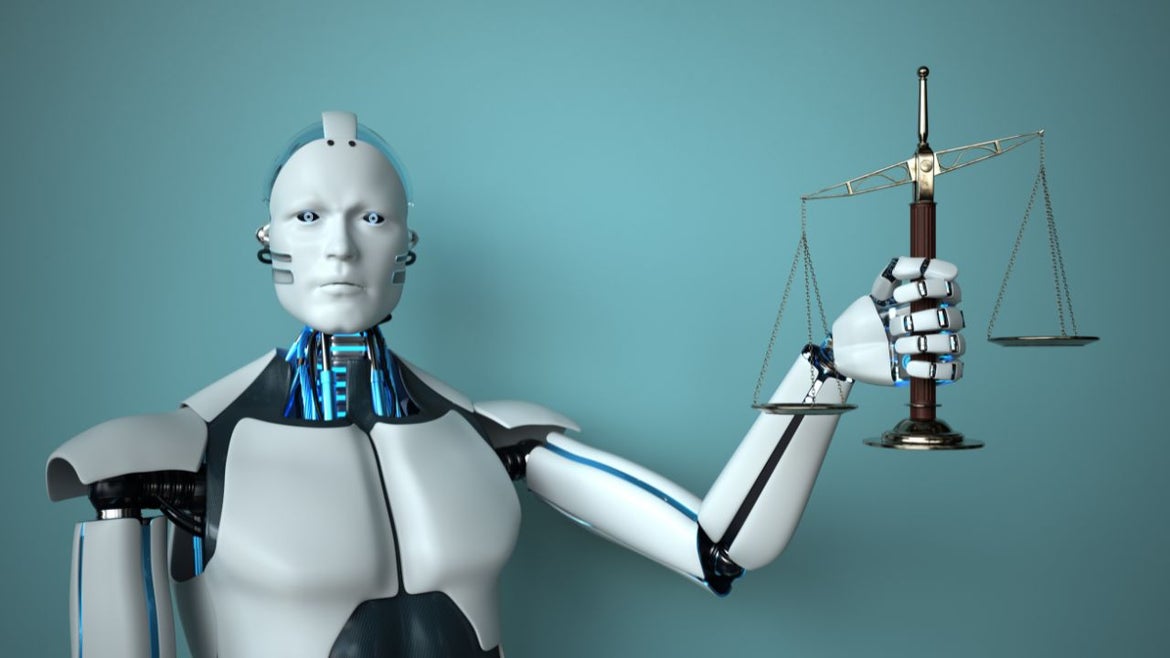The defendant will appear in court with a smartphone and headphones, and an artificial intelligence (AI) lawyer will listen to the proceedings and voice an answer into the defendant's headphones so they may repeat it aloud.
A robot lawyer is set to be the first of its kind to appear in court and help a defendant argue their case.
DoNotPay cites itself as the world's first robot lawyer, according to its website, and in February it will put that statement to the test when it battles a defendant's traffic ticket live in court.
The defendant will go into their court hearing equipped with a smartphone and headphones, and the artificial intelligence (AI) lawyer will listen to the arguments in court and speak its response into the headphones for the defendant to repeat out loud, CBS News reported.
The company’s CEO, Joshua Browder, took to Twitter in December looking for anyone willing to try out the new feature.
“We want to build a @donotpay bot that listens to the court hearing via your AirPods and whispers what to say with GPT-3 and LLMs,” Browder tweeted. “We just want to experiment and will pay the ticket, even if you lose!”
The tweet quickly attracted skeptics, stating that wearing AirPods in court alone would be illegal, to which Browder responded by saying they’d first do a compliance review before going forward.
Browder’s tweet must’ve gotten someone's attention because of the 300 cases considered, two have been chosen after the compliance reviews deemed them feasible, according to CBS News.
The court details such as where the case will be held and whose case it is will remain hidden as Browder fears it may be blocked by the judge if found out, Politico reported.
DoNotPay is no stranger to legal battles as its mission has been “to help consumers fight against large corporations and solve their problems like beating parking tickets, appealing bank fees, and suing robocallers,” according to the website.
The company utilizes AI to create letters and scripts to help consumers battle traffic tickets, fines, robocallers, and offers help with other services.
According to its website, the company’s goal “is to level the playing field and make legal information and self-help accessible to everyone.”
While AI lawyers may be good for the pocketbook, they aren't a good idea by everyone. Nicholas Saady, a litigator that advises on AI use in business and legal practices, spoke about how they may fall short.
Saady believes that these robots don’t have the abilities that actual humans do, such as reading body language or the ability to make those split-second strategic decisions.
Despite opposition, Browder is set to move ahead, already looking to take on bigger cases. He took to Twitter again in search of anyone willing to try out DoNotPay in front of the U.S. Supreme Court.
“DoNotPay will pay any lawyer or person $1,000,000 with an upcoming case in front of the United States Supreme Court to wear AirPods and let our robot lawyer argue the case by repeating exactly what it says,” Browder said.






